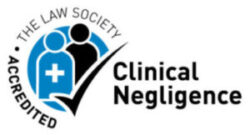A study conducted by Dutch researchers and published in the British Medical Journal has produced worrying evidence suggesting that “difficult” patients are more likely to be misdiagnosed.
The study found that instances of medical misdiagnosis could rise by as much as 42% in cases where patients present with complex symptoms in a manner that doctors find disruptive.
Conversely, the rate of misdiagnosis fell to just 6% in instances where doctors felt more at ease interacting with the patient, indicating that the quality of patient interaction is a significant factor in the accuracy (or inaccuracy) of medical diagnoses.
NHS Patients May Face Inconsistent Diagnoses
Whilst the research was undertaken in Europe, it may suggest NHS patients in England and Wales are facing similarly inconsistent diagnoses. In these cases, patients might potentially be eligible to make a compensation claim for clinical negligence in instances where a medical misdiagnosis or delayed diagnosis contributed to exacerbated or new symptoms.
Complex Symptoms Compound Misdiagnosis in ‘Difficult’ Patients
The research focused on a sample of 63 junior GPs in their final year of training, who were presented with six written statements describing patients exhibiting symptoms associated with conditions such as pneumonia or alcohol-induced inflammation of the pancreas. In each case, the doctors were presented with two patient statements; in the first the patient was presented as “neutral” and generally cooperative, in the second the patient was “utterly helpless” and / or disruptive of the doctor’s efforts. They were then asked to put forward a diagnosis based on the statements under timed pressure, and invariably produced a higher rate of misdiagnosis in relation to the “difficult” patients. This issue was further compounded when the patient presented with a more complex complaint, such as appendicitis or thyroid disorder, and remained so even when additional time was allocated, indicating that doctors were struggling to disengage with more trying patients.
Overstretch and Underfunded NHS Leading to Misdiagnosis
Follow-up research conducted by Dr Silvia Memede of the Erasmus Medical Centre in Rotterdam indicated that the problem of misdiagnoses in such patients may in part be down to doctors only being able to devote a finite amount of mental patience to any given patient; a notion ever more pertinent in today’s overstretched, underfunded NHS. Whilst Memede’s team acknowledged some discrepancies between the experiment design and what was likely to occur in real life, all indications were that in an actual doctors’ surgery the rate of misdiagnosis would in all likelihood be higher still. Issuing a statement to The Independent, Memede professed that:
“The most likely is that the effect of behaviours displayed by real patients is stronger. In real settings, physicians need to determine which information needs to be gathered and search for it themselves, which tends to make reasoning more demanding and therefore more prone to flaws.”
Jason Brady, clinical negligence solicitor at Blackwater Law said:
“We are already aware that there can be differences in the standard of care between GPs and GP practices, but to see such a variance in diagnosis, solely based on the behaviour of the patient, is concerning. Of course, patients must behave appropriately when visiting their GP so as not to hinder their GP in assessing them. But the research raises questions as to the standard of care that might be received by vulnerable patients with behaviour disorders.”
Claim Compensation for Misdiagnosis
The research makes for worrying reading, but if you or members of your family feel that you may have been at risk of, or suffered because of a medical misdiagnosis, you may be eligible for misdiagnosis compensation.
Contact Blackwater Law clinical negligence solicitors in Suffolk and Essex for free initial advice on 0800 083 5500. You will receive expert initial free legal advice.
All accepted misdiagnosis compensation claims are operated by Blackwater Law on a no win, no fee basis.





